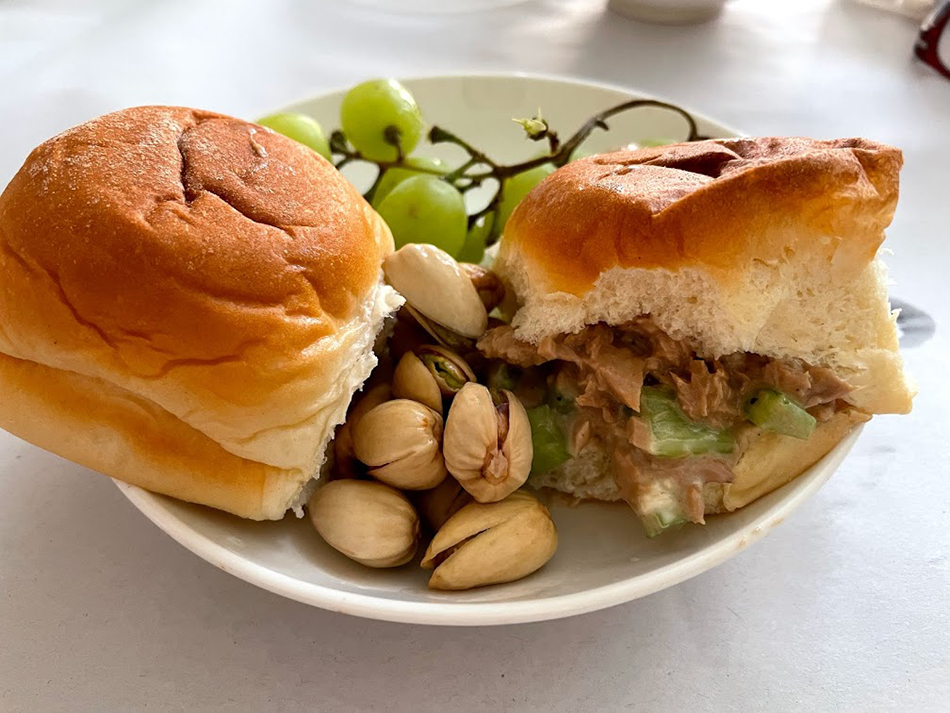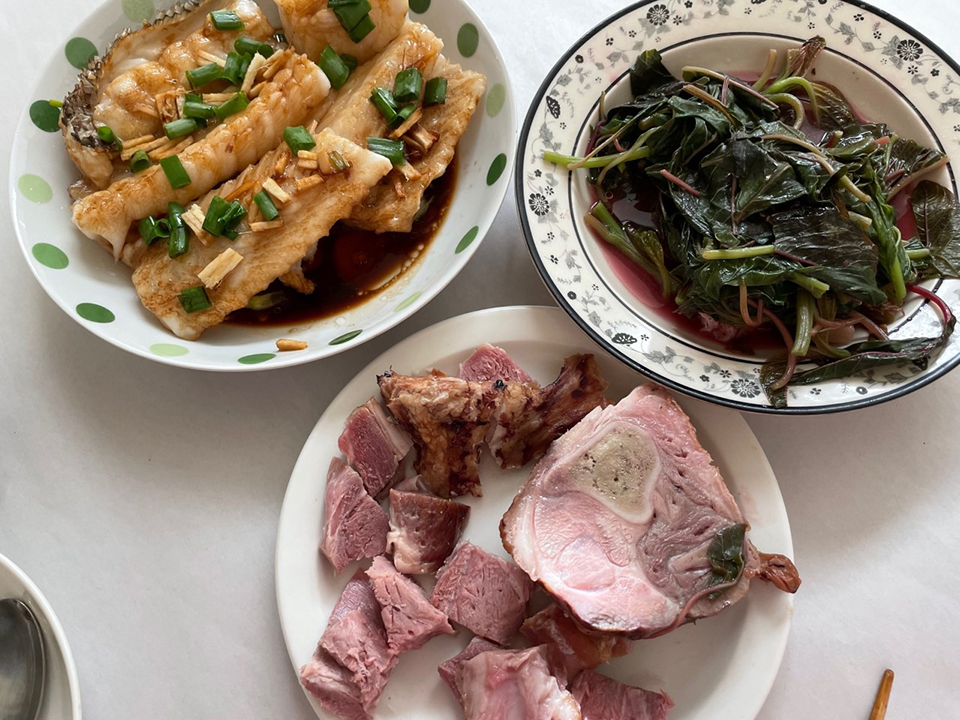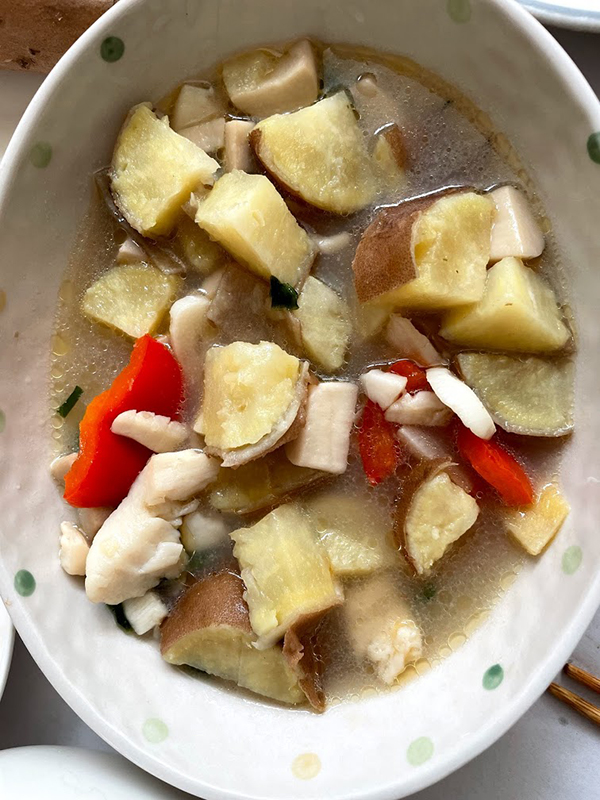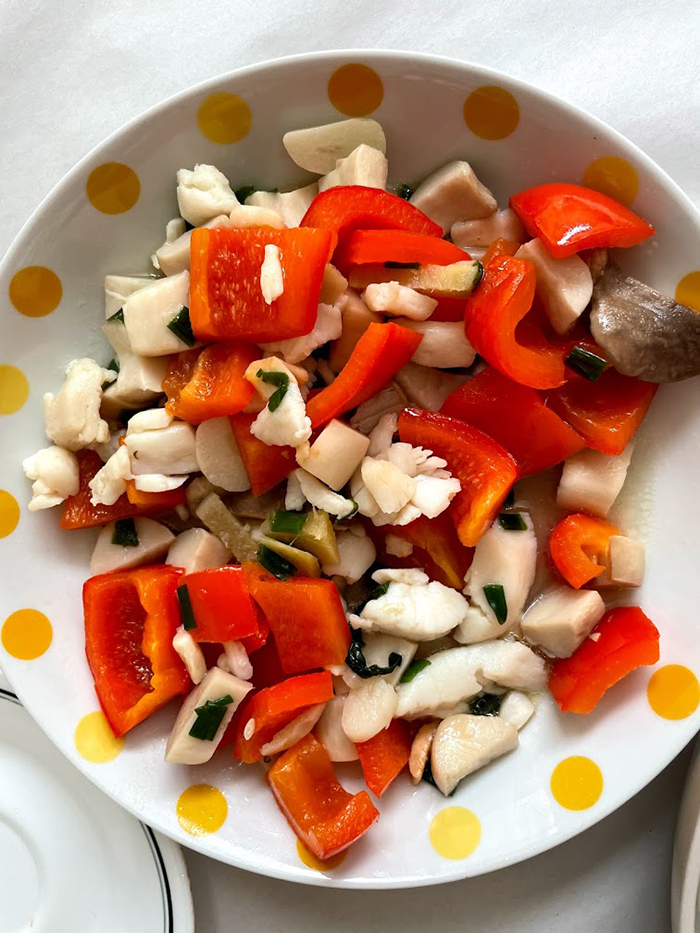By Assunta Ng
NORTHWEST ASIAN WEEKLY
Recently, I asked a supermarket cashier if she had made a mistake on a lemon I bought.
“No, it’s 59 cents,” she said.
A few months ago, I bought three small lemons for $1. Now, one small lemon costs 59 cents. That’s a 78% increase! I don’t usually look at the cash register when items are scanned or entered. At that time, however, I just happened to see it.
Last year, regular gasoline was $2+, now it’s $3+. Holy cow, what’s happening? My relative said, “Since the Democrats are in power, everything is expensive.” You can tell my relative is Republican. When anything goes wrong in this country, she blames the Democrats. The truth is, it has nothing to do with Democrats or Republicans.
So does it have to do with the pandemic? Is it because of stimulus checks and people getting money? Is it because the economy is recovering? Is it because of inflation?
The pandemic has a lot to do with it. During Covid, many of the supply chains have been disrupted. For instance, farmers lost revenue because they were unable to transport their products or they didn’t have enough workers during harvest season. Lumber prices have soared because many people staying at home have plenty of time to embark on do-it-yourself projects. The demand for housing also sparked the need for lumber. The good news is, lumber prices have recently stabilized.
The shortage of labor has also enhanced wages in many sectors of the economy. The majority of grocery stores have increased pay as their employees are essential frontline workers. Hence, food prices have jumped much higher. In the post-pandemic era, the demand for all kinds of goods is natural. When demand is low, prices go down to encourage consumption and sales. Now, business owners have to raise prices to make up for the losses they suffered during the pandemic.
Saving gas money
There are ways to save money, even as prices rise. All you need is better planning. To avoid spending money on gas, work remotely. It’s now possible because of the pandemic. Arrange carpooling with your friends and colleagues. If you don’t drive, you save not only gas money, but parking fees. Finding parking is stressful and time-consuming.
Public transportation is an option. These days, I avoid using Uber or Lyft. That’s also expensive. If I need to go downtown from Chinatown, I walk. I get exercise while saving money. If you walk together with a friend, it’s even more fun.
Saving food costs
It’s not my style to go out and get coffee or drink sodas. Mostly, I drink hot water, even in restaurants. I’d rather save the money to give as tips for the wait staff. If you want to buy healthy and economical drinks, I recommend coconut water, not coconut juice, which is not as healthy. The other choice is sugarless soy milk. One bottle of coconut water or soy milk contains many cups.
Before Covid, I never looked at the price tag when I shopped at supermarkets. Now, I do so I can do a better job in writing this blog. Since I am a foodie, I enjoy learning more about food costs to help my readers.
Eating well doesn’t mean you have to buy expensive stuff. You save a lot more money if you buy seasonal vegetables and fruits. It tastes better and it matters more if you are a good cook.
Eat out or not
With the statewide reopening, many restaurants are packed with diners. But if you have a tight budget, it’s better to cook at home. That’s just simple math. You save more money by eating at home. But if you have the means, eat out more and treat your family and friends. The restaurants need your support, now more than ever.
When you shop, buy local. It saves you money in the long run, and it supports the local economy. Imported food is usually more expensive but with exceptions. A Hawaii papaya costs $5 to $9, but papaya from Thailand, which is three times bigger, costs much less. You can get one from Lam’s Seafood. A can of corned beef is $6+ from Australia, but ones from the U.S. cost much less. So read the labels.
Grow your own food
My office cleaning lady grows vegetables at the Danny Woo Garden, as well as a community garden in another part of Chinatown-International District (CID). She often gives her crops to us and her friends. That’s why she has friends all over the community. We pay her for the food she gives and cooks for us, too.
Imagine her joy when she gathers all the fresh produce of the East and West from her own tiny garden, not to mention the money she can save from buying vegetables. Doctors have suggested gardening as an effective way to battle depression. The benefits are abundant—getting outdoors, enjoying the sunshine, breathing fresh air, and making new friends.
What do we eat at home?

Tuna fish with celery on Hawaiian rolls (Photo by Assunta Ng)
Tuna fish with celery and Miracle Whip sandwiches are nutritious, delicious, and quick to make. Hawaiian rolls are my first choice, which costs about $3+ for 12. Our tuna fish lunch for two with five Hawaiian rolls costs only $5.
Creativity plays an important role in your food choices and presentation to enhance your appetite. One day, my husband asked if I wanted to eat corned beef sandwiches or frozen wonton noodles, which we bought.
“Why not corned beef wonton noodles?” I said. It was our original idea, and it tasted fabulous and was inexpensive.
It’s a good thing I love bones. Fish bones are high in omega-3 fats, phosphorus, and calcium. And they are the cheapest at Asian supermarkets. It’s misleading that they are labeled as bones, as these bones carry fish meat as well. You can also use them to make broth. We steam them and turn them into one of the dishes.

Smoked pork hocks with garden grown vegetables and steamed fish bones (Photo by Assunta Ng)
Smoked pork hocks are another inexpensive yet delicious food. We bought two recently, which cost only $2. I love them as it also has meat in it.

Broken scallops stir-fried with sweet potatoes (Photo by Assunta Ng)
Scallops are a good dinner item. You would say scallops are expensive, which can cost over $25 a pound. Not if you buy the broken scallops (not in one piece) at Uwajimaya. I prefer broken scallops as it saves cutting time. For $10, it is enough for my husband and me to separate them into three meals. The first one, we stir-fried with mushrooms; the second dish, we stir-fried with red peppers; and the third meal with sweet potatoes. Because the scallops are salty (from the sea water), we made broth from it after cooking them.

Broken scallops stir-fried with red peppers and mushroom (Photo by Assunta Ng)
Maximize your use in daily products
If your make-up or toothpaste comes from a plastic tube, you can cut it open and use every drop. Whatever remains, it can last more than a week for me.
The bone broths we use at home, I usually rinse out with water to clean out the last drops for my soup.
Housing
Paying rent is expensive, unless you are living in low-income housing. But I heard some low-income housing is just as expensive. For instance, a small room of 200 square feet in the CID can cost as much as $800.
It’s best to own your own home. My mom relied on rent money to make ends meet by being a landlord in Hong Kong. She rented out three to four bedrooms in our apartment. It’s a good way to cut down on your living expenses, or help to pay your mortgage if you own your home.
Or you can rent a house together with friends to share maintenance costs of the house. That saves money, too.
Make your own drinks
For those who enjoy drinking expensive bubble teas, and coffees and lattes, are you aware that if you cut down, you can save a lot of money in a year? You can learn how to make those teas and even smoothies yourself. Bubble tea ingredients are available in Asian grocery stores, such as Viet Wah Market. You can make your own and bring them along to hang out with friends in parks.
It doesn’t cost you a lot. It’s a lot of fun to make your own drinks.
There’s a lot you can do to save money. You just have to think harder and pay attention. Share tips with friends and vice versa, you never know what you will discover. It’s a great way to connect with people.
Assunta can be reached at assunta@nwasianweekly.com.



